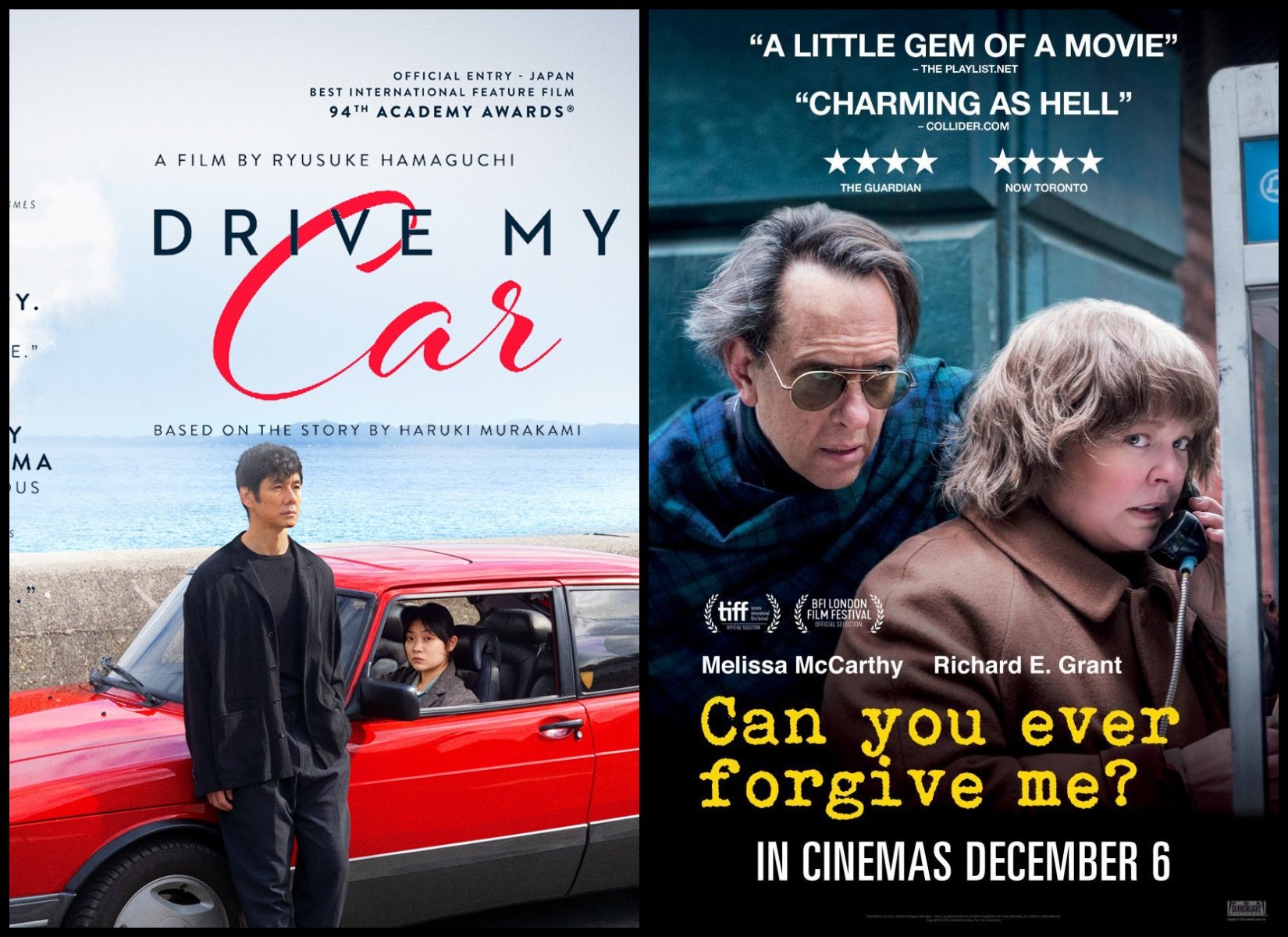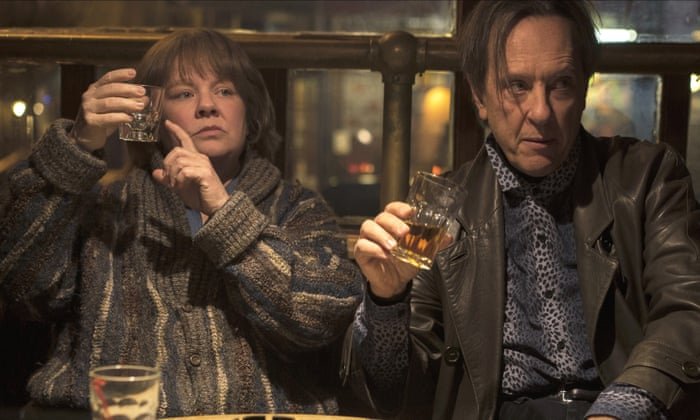Attractionless: Drive My Car (2021), directed by Ryûsuke Hamaguchi and Can You Ever Forgive Me? (2018), directed by Marielle Heller by Matt Olsen
Near the beginning of this year, I was finally able to see Ryûsuke Hamaguchi’s much-acclaimed new film, Drive My Car. The heaps of critical praise it has been given are well deserved and I don’t hesitate to add my own laudatory comments, for whatever they’re worth. One of the key elements of the story that struck me is the relationship between a middle-aged theatrical director and his driver, an adult woman maybe twenty years his junior. Almost uniquely in the history of movies, the scenes between the two – arguably the central relationship in the film – never remotely insinuate any sexual tension or curiosity. There is a late-chapter suggestion this this may be a simulated father/daughter dynamic but even that is shrugged off as not quite accurate either. Instead, we are presented with a (presumably) sexually-capable man and woman existing outside any romantic development. One of those things – like saying “goodbye” at the end of a telephone conversation – which is common in the real world but rarely happens in the movies. It led me to remember the only other example (?) of a non-sexual, peer-based adult male/female friendship in 2018’s excellent Can You Ever Forgive Me? (I know that can’t be the ONLY other example, but I’m hard-pressed to find one with similarly no desire, threat of attraction, or wisdom of the elder features.)
Can You Ever Forgive Me? is based on the autobiography of Lee Israel, a floundering writer of middling biographies who turns to creating and selling forgeries of letters from such notables as Dorothy Parker, Lillian Hellman, and Noel Coward. In an absolutely absorbing performance, Melissa McCarthy plays Lee as miserable, narcissistic, angry, lonely, and impenetrable. In other words, not the sort of person who easily makes or keeps friends. In a nearly-deserted daytime bar, Richard E. Grant appears as Jack Hock, a distant acquaintance – he and Lee attended the same party some years prior. The kindest description of him would be “a charming rogue” but that generously overlooks his intrinsic deceit, manipulation, unreliability, and recklessness. It’s perhaps a bit of movie magic that two self-involved alcoholics would find enough common ground to forge a friendship, but the portrayals by McCarthy and Grant are so rich and genuine that the question is quickly absolved.
Of course, it should be noted that neither Lee nor Jack is heterosexual which simplifies avoiding the entanglements. (Though, that certainly hasn’t stopped countless other films from elasticizing their characters’ sexual identities to fit the story.) Free of the cliches of the meet cute and slapstick misunderstandings, Lee and Jack are able to exist as independent adult friends just like the men and men and the women and women across the rest of cinema. Their hazy moral code may be the thing that initially binds the two but there’s a visible degree of genuine care that develops between them. When Lee reveals the secret of her crime to Jack, she shows an ease and comfort that exists in a camaraderie inherently separate from sex.
Why is this kind of relationship so under-represented? Perhaps, the difficulty of pulling it off successfully is too intimidating. Without the mastery of acting, directing, writing, etc., behind and in front of the camera in these two films, there could be an emptiness at the center more easily filled by a romantic soup. Not to say that romance, sex, attraction, physical yearning, and the whole gestalt of being alive aren’t also fertile ground for storytelling. One only has to watch every other film ever made for proof. But, in contrast to the sentiment famously expressed in When Harry Met Sally, men and women can be friends, it just makes telling stories a bit more challenging and, when it works, a novel reward.
Matt Olsen is a largely unemployed part-time writer and even more part-time commercial actor living once again in Seattle after escaping from Los Angeles like Kurt Russell in that movie about the guy who escapes from Los Angeles.



